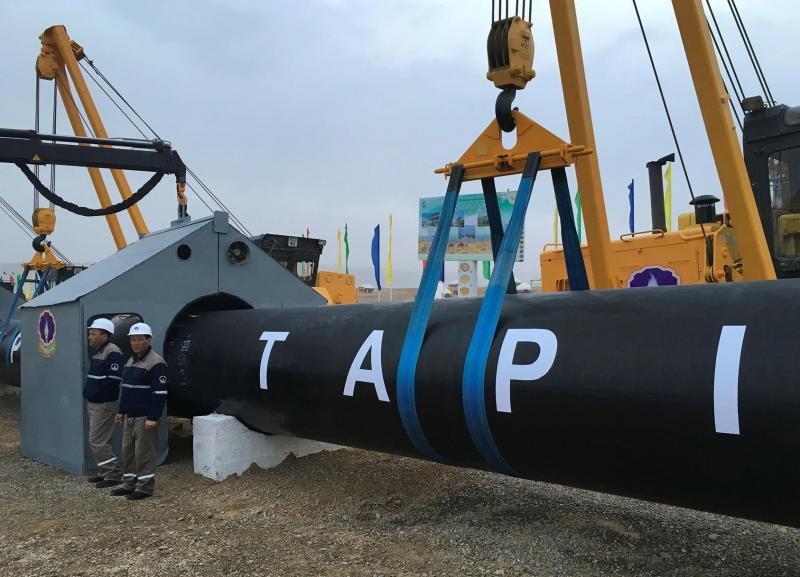KABUL (TCA) — Work on the implementation of Turkmenistan–Afghanistan–Pakistan–India (TAPI) gas pipeline project will start in Afghanistan in the next three months, the Afghan Ministry of Mines and Petroleum said on December 10, TOLOnews agency reported.
The ministry added that the Afghan government is fully ready to implement the project in the territory of Afghanistan.
It is expected that the process of implementation of the TAPI project in the country will be started in a special ceremony, ministry spokesman Abdul Qadeer Mutfi said.
In October, the ministry announced that the trans-national gas pipeline, which is being built in Turkmenistan, will reach the Afghan border in Herat by January 2018.
The pipeline will have the capacity of transferring 33 billion cubic meters of gas from Turkmenistan to Pakistan and India through Herat, Farah, Helmand and Nimroz provinces of Afghanistan.
The ministry says that Afghanistan is ready to secure the implementation of the project in Afghanistan’s territory.
Afghanistan is expected to get $500 million in transit duties annually from the project.
The 1,814-kilometre (1,127 miles) pipeline will run from gas fields in Turkmenistan through Afghanistan and Pakistan to India. It starts from the Galkynysh gas field.
In Afghanistan, TAPI pipeline will be constructed alongside the Kandahar–Herat Highway in western Afghanistan, and then via Quetta and Multan in Pakistan. The final destination of the pipeline will be the Indian town of Fazilka, near the border between Pakistan and India.








